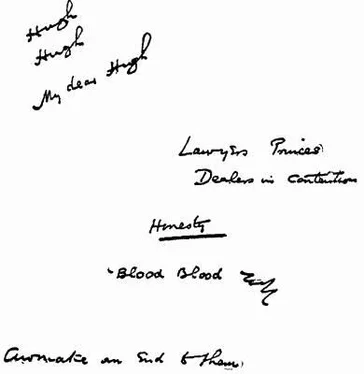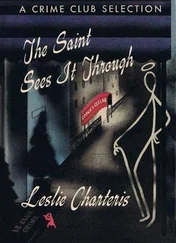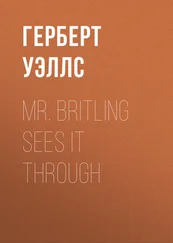Herbert Wells - Mr. Britling Sees It Through
Здесь есть возможность читать онлайн «Herbert Wells - Mr. Britling Sees It Through» весь текст электронной книги совершенно бесплатно (целиком полную версию без сокращений). В некоторых случаях можно слушать аудио, скачать через торрент в формате fb2 и присутствует краткое содержание. Жанр: Классическая проза, на английском языке. Описание произведения, (предисловие) а так же отзывы посетителей доступны на портале библиотеки ЛибКат.
- Название:Mr. Britling Sees It Through
- Автор:
- Жанр:
- Год:неизвестен
- ISBN:нет данных
- Рейтинг книги:4 / 5. Голосов: 1
-
Избранное:Добавить в избранное
- Отзывы:
-
Ваша оценка:
- 80
- 1
- 2
- 3
- 4
- 5
Mr. Britling Sees It Through: краткое содержание, описание и аннотация
Предлагаем к чтению аннотацию, описание, краткое содержание или предисловие (зависит от того, что написал сам автор книги «Mr. Britling Sees It Through»). Если вы не нашли необходимую информацию о книге — напишите в комментариях, мы постараемся отыскать её.
Mr. Britling Sees It Through — читать онлайн бесплатно полную книгу (весь текст) целиком
Ниже представлен текст книги, разбитый по страницам. Система сохранения места последней прочитанной страницы, позволяет с удобством читать онлайн бесплатно книгу «Mr. Britling Sees It Through», без необходимости каждый раз заново искать на чём Вы остановились. Поставьте закладку, и сможете в любой момент перейти на страницу, на которой закончили чтение.
Интервал:
Закладка:
"But beds," said Mr. Britling.
"Lord! they don't want beds ," said the young officer....
The whole Britling family, who were lamenting the loss of their Belgians, welcomed the coming of the twenty-five with great enthusiasm. It made them feel that they were doing something useful once more. For three days Mrs. Britling had to feed her new lodgers—the kitchen motors had as usual gone astray—and she did so in a style that made their boastings about their billet almost insufferable to the rest of their battery. The billeting allowance at that time was ninepence a head, and Mr. Britling, ashamed of making a profit out of his country, supplied not only generous firing and lighting, but unlimited cigarettes, cards and games, illustrated newspapers, a cocoa supper with such little surprises as sprats and jam roly-poly, and a number of more incidental comforts. The men arrived fasting under the command of two very sage middle-aged corporals, and responded to Mrs. Britling's hospitalities by a number of good resolutions, many of which they kept. They never made noises after half-past ten, or at least only now and then when a singsong broke out with unusual violence; they got up and went out at five or six in the morning without a sound; they were almost inconveniently helpful with washing-up and tidying round.
In quite a little time Mrs. Britling's mind had adapted itself to the spectacle of half-a-dozen young men in khaki breeches and shirts performing their toilets in and about her scullery, or improvising an unsanctioned game of football between the hockey goals. These men were not the miscellaneous men of the new armies; they were the earlier Territorial type with no heroics about them; they came from the midlands; and their two middle-aged corporals kept them well in hand and ruled them like a band of brothers. But they had an illegal side, that developed in directions that set Mr. Britling theorising. They seemed, for example, to poach by nature, as children play and sing. They possessed a promiscuous white dog. They began to add rabbits to their supper menu, unaccountable rabbits. One night there was a mighty smell of frying fish from the kitchen, and the cook reported trout. "Trout!" said Mr. Britling to one of the corporals; "now where did you chaps get trout?"
The "fisherman," they said, had got them with a hair noose. They produced the fisherman, of whom they were manifestly proud. It was, he explained, a method of fishing he had learnt when in New York Harbour. He had been a stoker. He displayed a confidence in Mr. Britling that made that gentleman an accessory after his offence, his very serious offence against pre-war laws and customs. It was plain that the trout were the trout that Mr. Pumshock, the stock-broker and amateur gentleman, had preserved so carefully in the Easy. Hitherto the countryside had been forced to regard Mr. Pumshock's trout with an almost superstitious respect. A year ago young Snooker had done a month for one of those very trout. But now things were different.
"But I don't really fancy fresh-water fish," said the fisherman. "It's just the ketchin' of 'em I like...."
And a few weeks later the trumpeter, an angel-faced freckled child with deep-blue eyes, brought in a dozen partridge eggs which he wanted Mary to cook for him....
The domesticity of the sacred birds, it was clear, was no longer safe in England....
Then again the big guns would go swinging down the road and into Claverings park, and perform various exercises with commendable smartness and a profound disregard for Lady Homartyn's known objection to any departure from the public footpath....
And one afternoon as Mr. Britling took his constitutional walk, a reverie was set going in his mind by the sight of a neglected-looking pheasant with a white collar. The world of Matching's Easy was getting full now of such elderly birds. Would that go on again after the war? He imagined his son Hugh as a grandfather, telling the little ones about parks and preserves and game laws, and footmen and butlers and the marvellous game of golf, and how, suddenly, Mars came tramping through the land in khaki and all these things faded and vanished, so that presently it was discovered they were gone....
CHAPTER THE THIRD
MALIGNITY
§ 1
And while the countryside of England changed steadily from its lax pacific amenity to the likeness of a rather slovenly armed camp, while long-fixed boundaries shifted and dissolved and a great irreparable wasting of the world's resources gathered way, Mr. Britling did his duty as a special constable, gave his eldest son to the Territorials, entertained Belgians, petted his soldiers in the barn, helped Teddy to his commission, contributed to war charities, sold out securities at a loss and subscribed to the War Loan, and thought, thought endlessly about the war.
He could think continuously day by day of nothing else. His mind was as caught as a galley slave, as unable to escape from tugging at this oar. All his universe was a magnetic field which oriented everything, whether he would have it so or not, to this one polar question.
His thoughts grew firmer and clearer; they went deeper and wider. His first superficial judgments were endorsed and deepened or replaced by others. He thought along the lonely lanes at night; he thought at his desk; he thought in bed; he thought in his bath; he tried over his thoughts in essays and leading articles and reviewed them and corrected them. Now and then came relaxation and lassitude, but never release. The war towered over him like a vigilant teacher, day after day, week after week, regardless of fatigue and impatience, holding a rod in its hand.
§ 2
Certain things had to be forced upon Mr. Britling because they jarred so greatly with his habits of mind that he would never have accepted them if he could have avoided doing so.
Notably he would not recognise at first the extreme bitterness of this war. He would not believe that the attack upon Britain and Western Europe generally expressed the concentrated emotion of a whole nation. He thought that the Allies were in conflict with a system and not with a national will. He fought against the persuasion that the whole mass of a great civilised nation could be inspired by a genuine and sustained hatred. Hostility was an uncongenial thing to him; he would not recognise that the greater proportion of human beings are more readily hostile than friendly. He did his best to believe—in his "And Now War Ends" he did his best to make other people believe—that this war was the perverse exploit of a small group of people, of limited but powerful influences, an outrage upon the general geniality of mankind. The cruelty, mischief, and futility of war were so obvious to him that he was almost apologetic in asserting them. He believed that war had but to begin and demonstrate its quality among the Western nations in order to unify them all against its repetition. They would exclaim: "But we can't do things like this to one another!" He saw the aggressive imperialism of Germany called to account even by its own people; a struggle, a collapse, a liberal-minded conference of world powers, and a universal resumption of amiability upon a more assured basis of security. He believed—and many people in England believed with him—that a great section of the Germans would welcome triumphant Allies as their liberators from intolerable political obsessions.
The English because of their insularity had been political amateurs for endless generations. It was their supreme vice, it was their supreme virtue, to be easy-going. They had lived in an atmosphere of comedy, and denied in the whole tenor of their lives that life is tragic. Not even the Americans had been more isolated. The Americans had had their Indians, their negroes, their War of Secession. Until the Great War the Channel was as broad as the Atlantic for holding off every vital challenge. Even Ireland was away—a four-hour crossing. And so the English had developed to the fullest extent the virtues and vices of safety and comfort; they had a hatred of science and dramatic behaviour; they could see no reason for exactness or intensity; they disliked proceeding "to extremes." Ultimately everything would turn out all right. But they knew what it is to be carried into conflicts by energetic minorities and the trick of circumstances, and they were ready to understand the case of any other country which has suffered that fate. All their habits inclined them to fight good-temperedly and comfortably, to quarrel with a government and not with a people. It took Mr. Britling at least a couple of months of warfare to understand that the Germans were fighting in an altogether different spirit.
Читать дальшеИнтервал:
Закладка:
Похожие книги на «Mr. Britling Sees It Through»
Представляем Вашему вниманию похожие книги на «Mr. Britling Sees It Through» списком для выбора. Мы отобрали схожую по названию и смыслу литературу в надежде предоставить читателям больше вариантов отыскать новые, интересные, ещё непрочитанные произведения.
Обсуждение, отзывы о книге «Mr. Britling Sees It Through» и просто собственные мнения читателей. Оставьте ваши комментарии, напишите, что Вы думаете о произведении, его смысле или главных героях. Укажите что конкретно понравилось, а что нет, и почему Вы так считаете.






